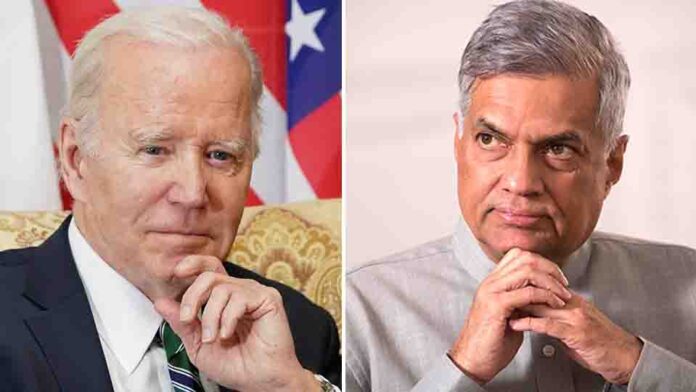AMNESTY: In response to the publication of the draft text of the proposed Anti-Terrorism Act by the Sri Lankan government, Amnesty International Asia Advocacy Director Carolyn Nash said:
“The draft Anti-Terrorism Act categorically fails on every human rights benchmark. If the Biden administration values the rights of the Sri Lankan people, they need to send a clear message to President Ranil Wickremesinghe that this law must be overhauled entirely or scrapped altogether.”
The government of Sri Lanka has been using the draconian Prevention of Terrorism Act (PTA) to detain and torture critics and minorities for over four decades. International condemnation of the PTA led the government of Sri Lanka to commit to repealing the law. The ATA, published on March 22nd, is the replacement legislation the government has proposed after another bill brought in 2018 was shelved after widespread condemnation.
“If the administration and Congress are silent as this draft law advances, they will allow the Sri Lankan government to further cement its ability to suppress dissent,” said Nash. “The proposed legislation is an insult to civil society in Sri Lanka, who have advocated for decades for legal reforms to protect human rights. This is far from a good faith effort on the part of the Sri Lankan authorities to improve or replace a bad law – it is an effort to shore up the government’s ability to target and silence their critics.”
According to Amnesty International South Asia Researcher Thyagi Ruwanpathirana, “The drafters of the ATA have not taken into account the benchmarks laid out by UN experts in order to come up with a counter-terror law that would start to bring the legislation in line with international law. The offenses in the anti-terror bill remain broad, vague, and subjective. They are ripe for abuse. Even offenses under Sri Lanka’s ICCPR Act are now made terror offenses.”
“It’s clear after the mass protests last year, the state has become even more willing to misuse counter terrorism offenses in order to target activists. This is reflected in new offenses created that seek to classify acts of civil disobedience as terror offenses.”
The new bill also retains PTA provisions to enable prolonged detention (up to one year without charge). The High Court can extend this period on the request of the Attorney General. It provides the police with access to those who are already indicted and in judicial remand and enables suspects to be removed from remand custody for the purpose of conducting further investigations under the authority of an order made by a Magistrate.
“This provision is dangerous and facilitates torture, especially in a context that is already rife with allegations of torture in custody.” said Ruwanpathirana.
The bill empowers the military to carry out arrests without warrants. It retains unchecked powers of the executive, including to proscribe persons and organizations without judicial oversight. Penalties include the death penalty, which Amnesty strongly opposes.

